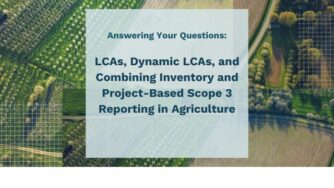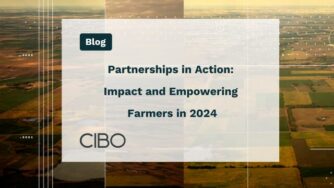In 2021, many organizations from General Motors (GM), Etsy, to sweetgreen are pledging to go carbon neutral. These organizations are leading the way to a zero-carbon economy by setting ambitious, science-based emissions reduction targets. Here are their goals.
General Motors Aims to be Carbon Neutral by 2040
The largest U.S. automaker, General Motors, has pledged to become carbon-neutral in its global products and operations by 2040, supported by a commitment to science-based targets. To reach its goals, GM plans to decarbonize1 its portfolio by transitioning to battery electric vehicles or other zero-emissions vehicle technology, sourcing renewable energy and leveraging minimal offsets or credits.
“General Motors is joining governments and companies around the globe working to establish a safer, greener and better world,” said Mary Barra, GM Chairman and CEO. “We encourage others to follow suit and make a significant impact on our industry and on the economy as a whole.”
Etsy Pledges Net Zero Carbon Emissions by 2030
Etsy was the first major online shopping destination to offset 100% of carbon emissions from shipping. As a result each item shipped from an Etsy store was balanced by investments in carbon neutral projects that reduced carbon emissions by the same amount.
Now, they are deepening their commitment to a sustainable future and unveiling Etsy’s new goal to reach net zero emissions by 2030. Efforts to reach this ambitious goal will touch every corner of the Etsy business and require buy-in from teams and partners around the globe.
Alongside the actions they are already taking, Etsy will be increasing their focus on working with sustainable vendors and suppliers, furthering advocacy for the decarbonization of the logistics and transportation sector, and addressing opportunities for cleaner fulfillment.
Etsy’s CEO Josh Silverman said, “Climate change remains an ever-present threat to our environment and humanity, and we are bound and determined to do everything within our power to not only continue to be a carbon neutral company, but to also drive reductions in our overall footprint.”
Sweetgreen’s Commitment to be Carbon Neutral by 2027
The salad chain sweetgreen has plans to cut its carbon footprint in half over the next six years. The rest of the organization’s emissions will be offset to make the company carbon neutral. Because of their plant-rich menu and founding the company with sustainability-minded food choices in mind, sweetgreen already emits less carbon per dollar of revenue than food industry standards. For their next stage, they plan to focus on three key areas of their business that drive the majority of our emissions: food sourcing, menu development, and how we build restaurants.
“Simply put, we believe it’s the right thing to do for our business and for the planet. With the food system driving 25 percent of global greenhouse gas emissions, the time for change is now,” says Nicolas Jammet, co-founder and Chief Concept Officer of sweetgreen. “We know that real change doesn’t happen overnight – it’s all the steps in between, the little moments that can lead to a big impact. That’s why we’re making this commitment.”
How to Get to Carbon Neutral
With all these pledges of carbon neutrality and purchasing carbon credits, these organizations need to look for areas both in and outside their supply chains for the necessary carbon credits to reach their goals.
CIBO believes that these organizations and others should be looking into agricultural carbon credits. Sustainable farming helps to accelerate agriculture’s ability to reduce greenhouse gas emissions and sequester carbon in the soil. CIBO Impact allows organizations to become carbon neutral by either purchasing carbon credits directly from US farmers or incentivizing growing operations in their supply chains.
Organizations can enroll the fields from their supply chains into CIBO Impact and see how well the current regenerative agriculture practices are performing. To help encourage growers to become more sustainable and help organizations reach their goals, they can add incentives for farmers to meet certain sustainability standards.
Through CIBO Impact, organizations can become an integral part of the climate solution by supporting and promoting regenerative farming practices associated with their organizations.
- Decarbonize: In this case, companies seek to mitigate their impact on the climate by eliminating the sources of emissions within the boundary of the target. This is often achieved by avoiding activities that generate emissions (e.g. avoiding combustion of fossil fuels) and/or by preventing the release of emissions that continue to be generated (e.g. through the capture and permanent sequestration of emissions before they are released into the atmosphere).



